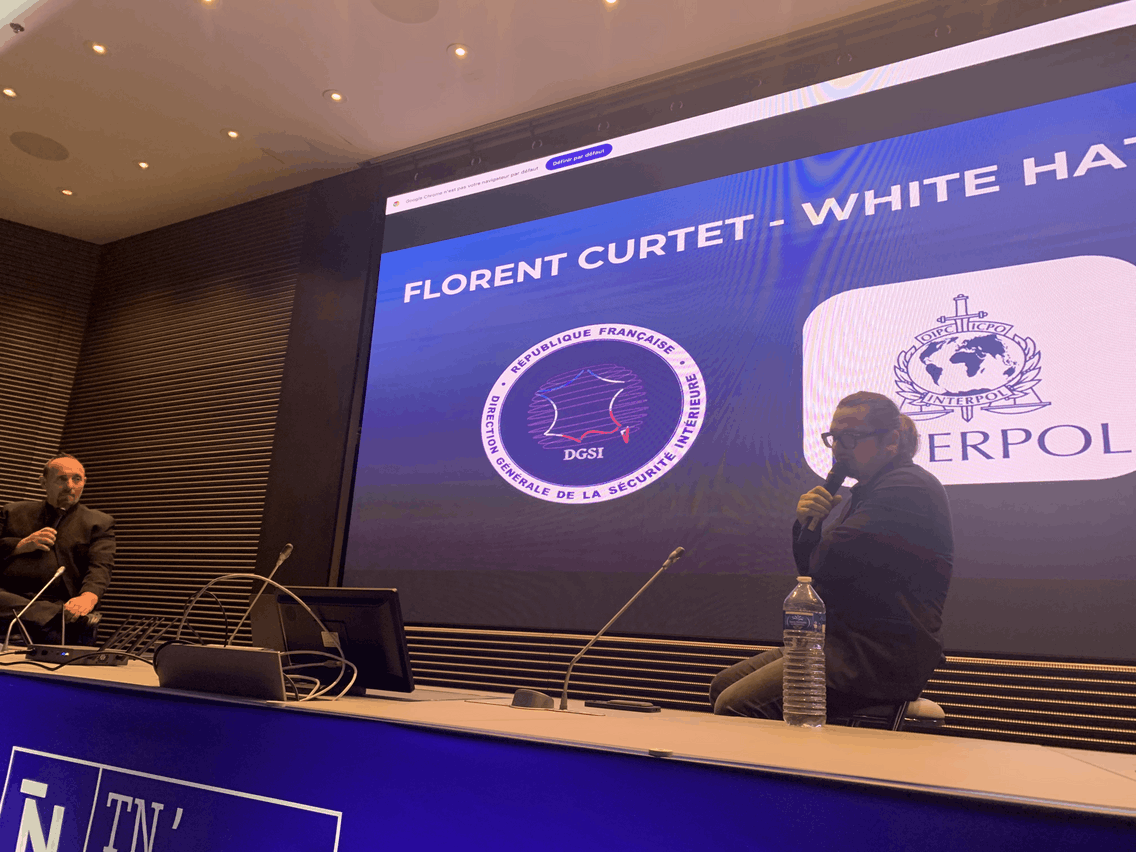How was it that, at the age of 17, Florent Curtet was considered by the CIA to be France’s top cybercriminal?
Curtet, now in his 30s, told his story to over 200 teenagers at EschTechWeek, held at the Digital Learning Hub in Belval. Alongside the ‘repentant hacker’ was Pierre Penalba, a former French police officer who was behind Curtet’s arrest in 2006.
The third day of EschTechWeek, organised by The Dots, was dedicated to youngsters. “This type of conference, where I talk to teenagers,” said Curtet, “is particularly touching because I can see myself at their age. I’d say I was almost lucky not to be part of this digital hyperconsumption. These kids are left to their own devices when it comes to their screens and I don’t think it’s all the fault of the parents: the national education system has its part to play.”
“At the end of the day, 14-, 15- or 16-year-olds don’t know how to open Word on a computer even though they know how to use TikTok and Instagram, how to repost and edit videos and so on. But they don’t know how to use a real computer. They’re consumers but not computer experts.” Now cofounder of the NGO Hackers Without Borders--which has mobilised some 4,000 volunteers--and managing partner of the company High Jack, which specialises in cybersecurity training, Curtet confessed to becoming intoxicated by the dark web.
Fake bankcards
At the age of 12, Curtet had already made a name for himself in the world of hackers. “I created the first phishing scams. We hacked into the late Caramail in the early 2000s. I made fake bankcards and notes, and in one shot I made €50,000.” Curtet subsequently got a two-year suspended prison sentence and an €80,000 fine in damages by the Hauts de Seine juvenile court. “I have a lot of remorse, especially for my parents’ sake, but what’s done is done. I’m now trying to show the positive and help young people.”
After going back to school and starting work, Curtet now specialises in preventing cyber attacks. His clients include major companies and police and intelligence services. The 30-year-old’s book Hack-Moi Si Tu Peux: Mémoires d’un Cyberpirate Repenti (Hack Me If You Can: Memoirs of a Repentant Cyberpirate) was published in 2023 and will soon to be the subject of a film and TV series.
And yet, as recently as 2021, he was back on the wrong side of the law.

Florent Curtet (right) speaks at the event. Off to the left side is Pierre Penalba, the former French police officer who helped arrest Curtet in 2006. Photo: Ioanna Schimizzi/Maison Moderne
“The Frenchman had positioned himself as a negotiator in the so-called Everest affair, which in 2021 led to a leak of data linked to the investigation of the Charlie Hebdo attack,” Le Monde has reported. Curtet was found guilty of criminal conspiracy and complicity in attempted extortion in December 2024, and given a two-year suspended prison sentence. So, was he an informer for France’s General Directorate for Internal Security (DGSI) or an accomplice to cybercriminals?
“I think it was a show trial, and I’d even go so far as to say that it was a relentless one,” commented Curtet. “I was working with the DGSI, and when they arrested me at my home I was in constant contact with Pierre [Penalba]. I had a file containing all the evidence of my infiltration. Pierre even testified on my behalf at the trial.”
He has not, however, lodged an appeal. “My parents were at the trial and I didn’t want to put them through that again. I’ll always regret it, I still dream about it, but fortunately it didn't affect my professional life. I was very afraid of having a wave of blacklisting vis-à-vis my clients, but that wasn’t the case.”
This article in French.
